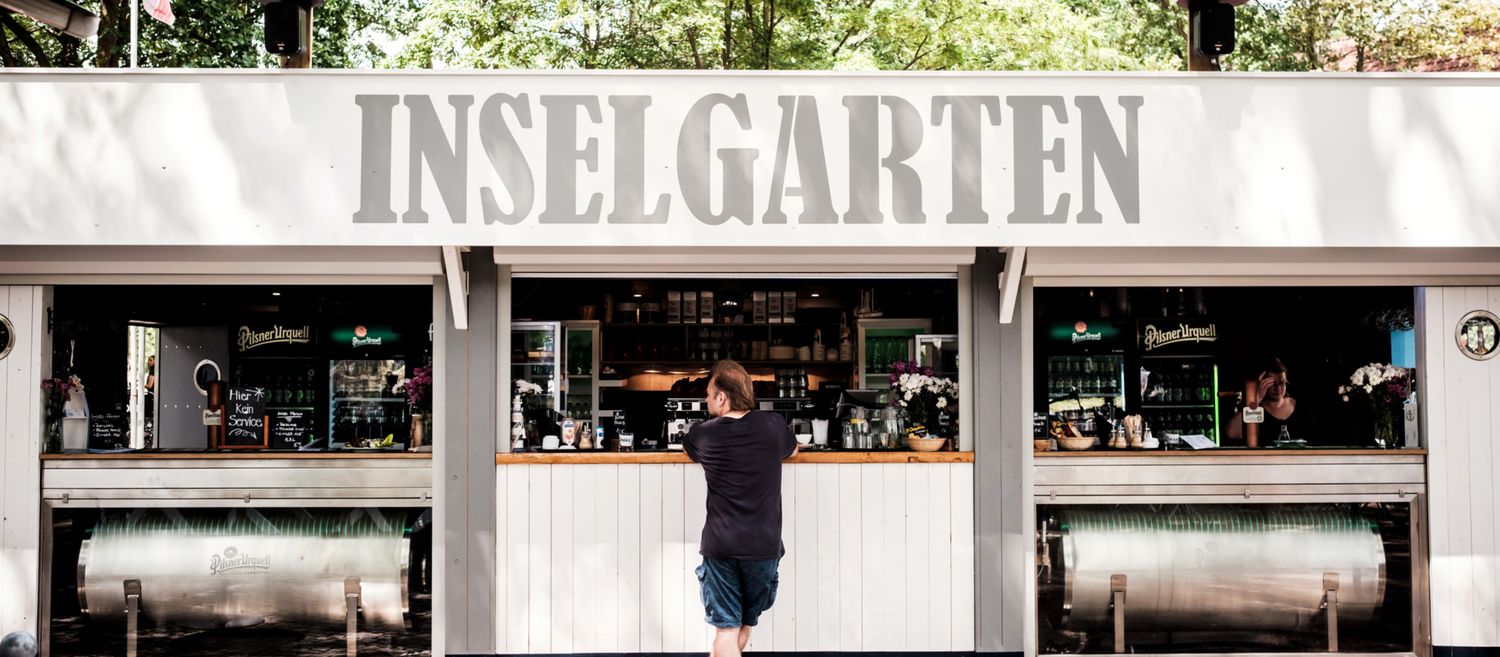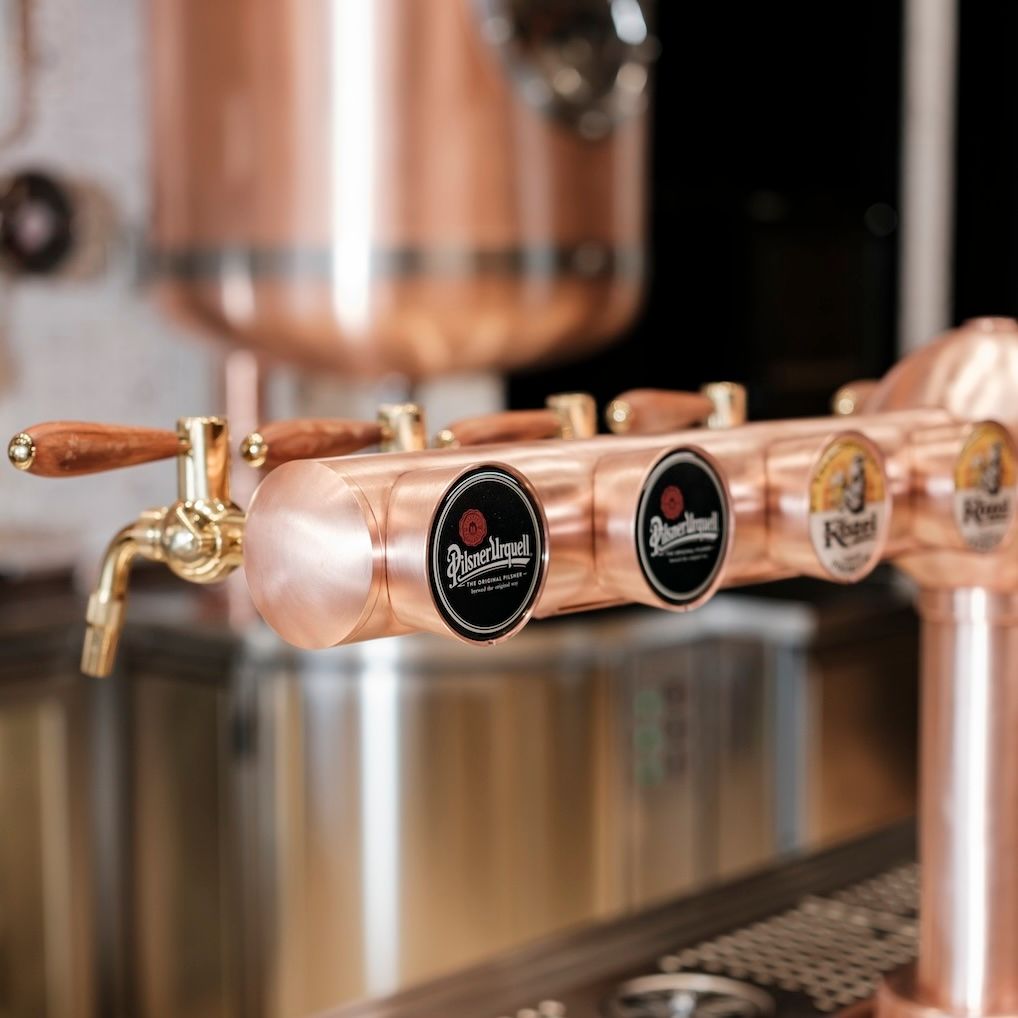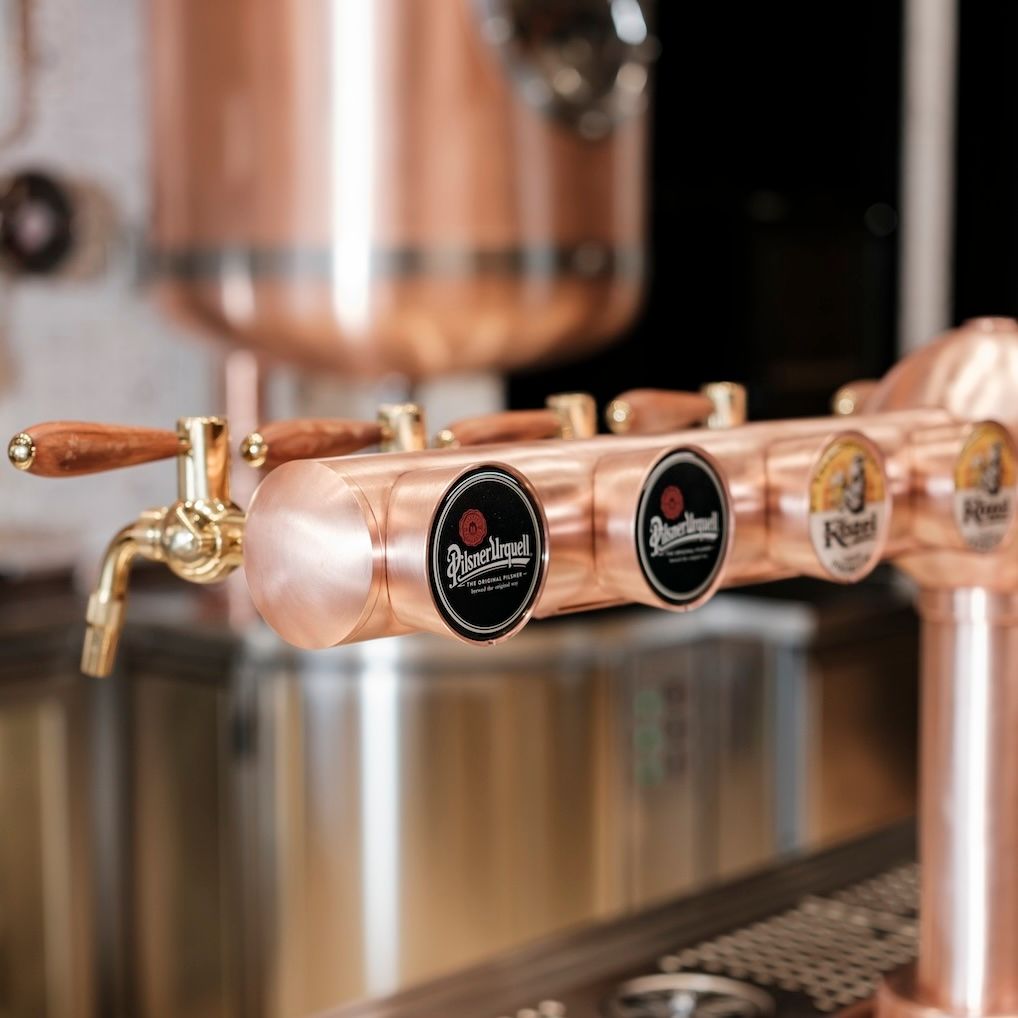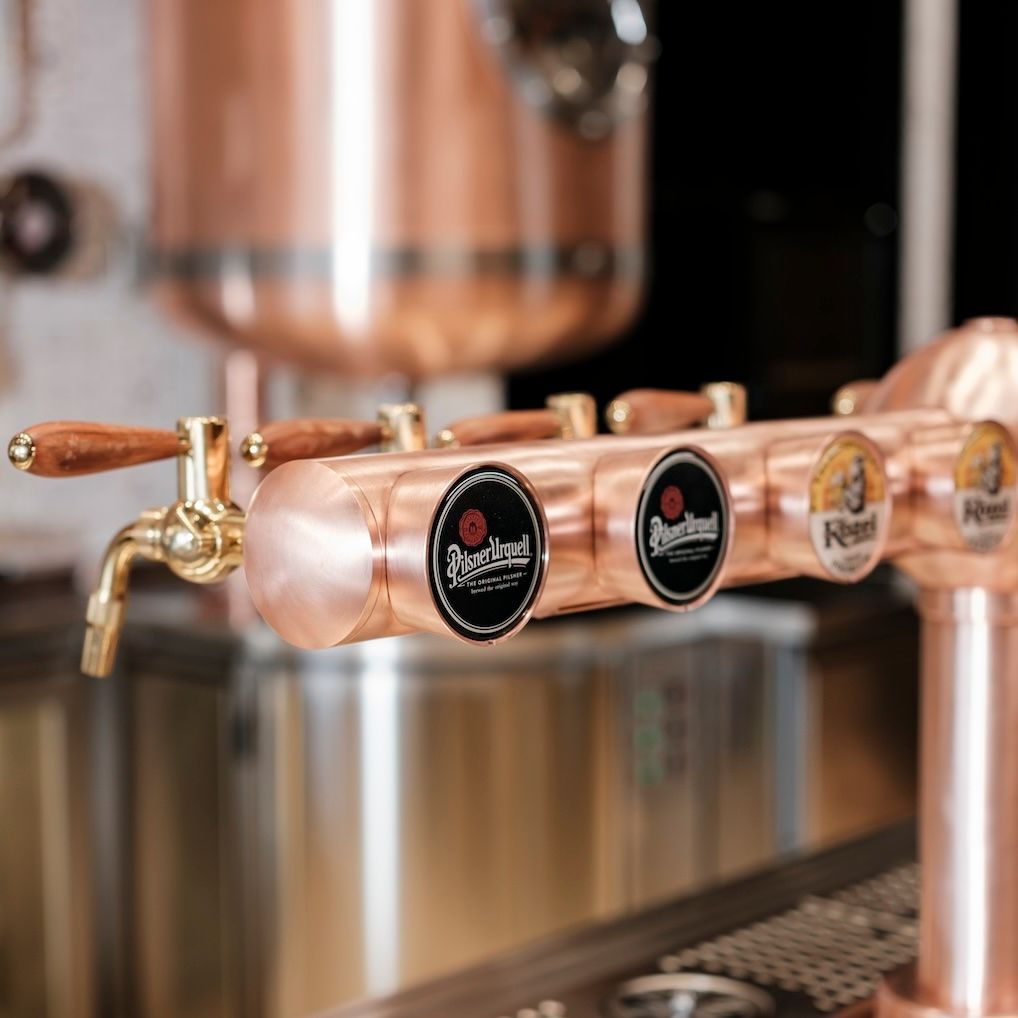Story
It is a hot day and we are sitting in the shade of some trees with a beer, surrounded on all sides by the gentle ebb and flow of the River Spree. When the conversation goes quiet, there is only the sound of birds and the occasional splash of a canoe paddle. It is hard to believe we are still in the centre of Berlin.
Inselgarten, literally ‘island garden’, must be one of the most scenic tank bars in the world. Situated on the Insel der Jugend, ‘Island of Youth’, you can see both Treptower Park and Plänterwald Forest from your deck-chair. You have to walk along tree-lined paths to get there, crossing the Abbey Bridge, the oldest steel and concrete composite bridge in Germany, which links the island with the rest of Berlin.
Just walking across the bridge feels like you are leaving the real world behind. “It’s like your holidays start when you get to the island”, says André Szatkowski, joint owner with Victoria Heinz. “It has always been a place of leisure and culture. It was created in 1896, when the park hosted the Great Industrial Exposition of Berlin, and was traditionally where East German families came to relax and unwind at the start of the 20th century.”
“It was called Abbey Island before GDR, because there used to be a monastery here”, adds Victoria Heinz, “but it was eventually renamed Island of Youth when the bridge house became an important youth clubhouse.”
Today, Inselgarten is a hidden oasis spanning 2,000 square metres in the heart of Berlin, attracting over 100,000 people during the summer.
“Our concept is simple. We want to bring back Berlin from the 1920s, when local families used to come to the island and dance after church. We’ve got lots of black and white postcards and pictures showing people promenading in their best clothes, eating and drinking and just enjoying themselves here”, says André. “It was such a simple time – it was just about having fun in their own neighbourhood. It’s something that seems to have been forgotten as Berlin has grown. We just want to be true to the city and the history – our ambition is to make the area popular again.”
“We opened the bar in 2010”, says Victoria, “originally to build musicians’ recording and rehearsal studios as we were both working in the music industry. We helped run Orwo House, an ex-East German film, tape and cassette manufacturer, which was the largest self-managed musicians’ house in Europe. So we wanted somewhere that allowed us to pursue our cultural passions. So at Inselgarten we host around two concerts a month – anything from soul, jazz and funk – and have a summer open-air cinema and poetry slams.
“We don’t want to be cool. We want to be real.”
In the centre of Berlin it’s more about electronic music – but here, it’s different. We want to create an authentic atmosphere, one that locals will enjoy. After all, this is not a tourist place – so we want to be honest to ourselves.”
“We were both born in Berlin”, says André, “and we only live five minutes away, both in the same street. So we’re hyper local ourselves. We don’t want to copy other bars – just give a bit of old Berlin back to the people who live around here.
The most important thing to build the right atmosphere is quality. We don’t sell anything we wouldn’t want to drink ourselves. In our opinion the Germans can’t brew beer, they’re all just too big and industrial. There are five main beer companies in Germany who share the market but they all taste the same and their bottles all look the same. There’s no character – which is something Inselgarten has lots of. So we approached Pilsner Urquell. We wanted to get their beer here. We trust Pilsner Urquell. It has simple branding, not so aggressive or in your face, and the beer is so authentic. It’s not a TV beer.
“The secret is passion and love – and to give it 100 per cent.”
Once a week a special Sprinter van, with two tanks strapped to the side, crosses the Abbey Bridge to fill up our tanks. The hardest part of running a bar is finding the right people. We want clever, reliable, honest and social people and because we employ 50 people in the summer season, we have to continually train them every two weeks to make them better.
We both came from poor backgrounds but we achieved our dream with small steps and staying true to our original concept. We had no money but we worked incredibly hard – we put in the manpower. We think guests will always have a great feeling when they see things created with passion. As we’ve both always said, ‘things grow with love’.”



